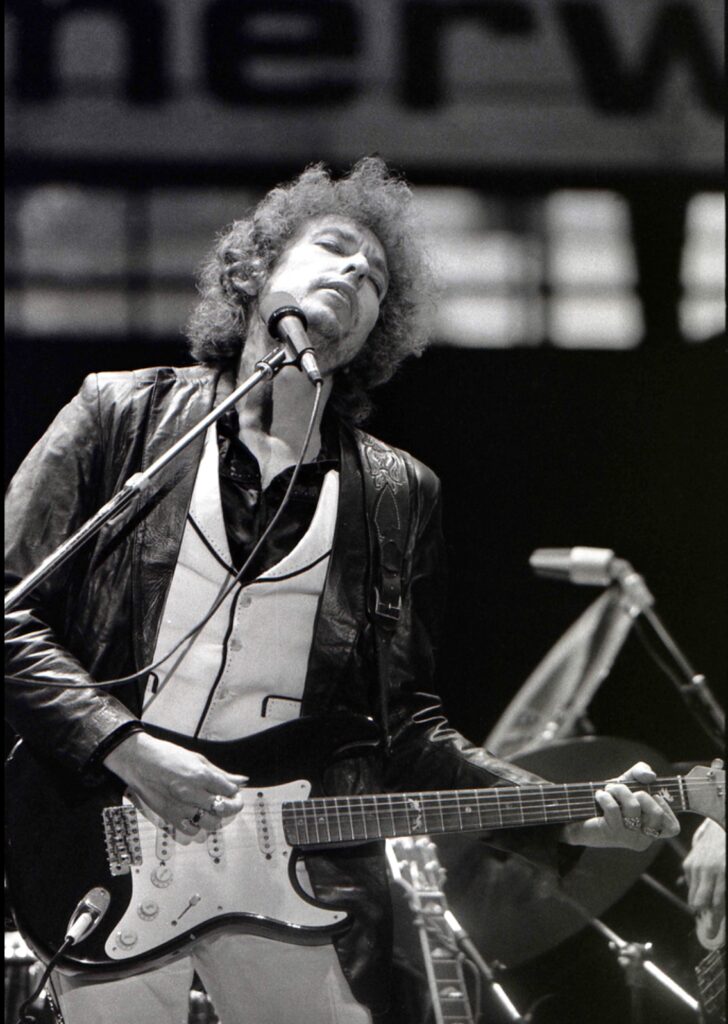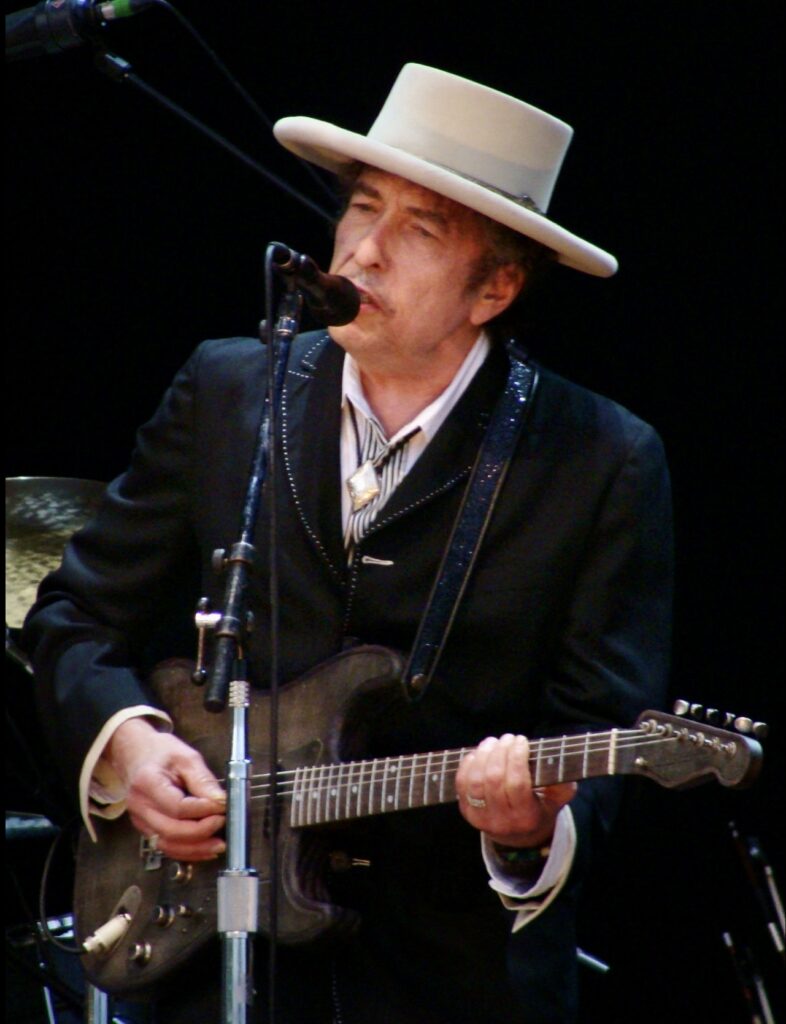BOB DYLAN: LITERATURE’S 2016 NOBEL LAUREATE
Text by Henrylito D. Tacio
Photos from Wikipedia
“I’ve only written four songs in my whole life, but I’ve written those four songs a million times.”
But Bob Dylan, the songwriter who said those words, has been acclaimed for the songs he had written. He already received 11 Grammy awards. In addition, he won a Golden Globe (from the Hollywood Foreign Press Association) and an Oscar (from the Academy of Motion Picture Arts and Sciences) for his song “Things Have Changed,” which was featured in the movie, Wonder Boys.

In 2001, the Pulitzer Prize jury gave him a special citation for “his profound impact on popular music and American culture, marked by lyrical composition of extraordinary poetic power.”
Wikipedia, in a biography of the American singing icon, wrote: “Dylan’s lyrics have incorporated various political, social, philosophical and literary influences. They defied existing pop music conventions and appealed to the burgeoning counterculture…. His accomplishments as a recording artist and performer have been central to his career, but songwriting is considered his greatest contribution.”
Last year, Dylan made headlines when his entire songwriting catalog of more than 600 songs was purchased by Universal Music for a whooping US$300 million. The wife of the late Jacques Levy, who collaborated with him on his 1976 album Desire, filed a lawsuit claiming that the collaborator’s estate was entitled to a portion of the sale.
In a Hollywood Reporter feature, Dylan said that “Levy co-wrote songs under a work-for-hire agreement that entitled him to royalties, not any share of the sale of copyrights.”
In 2016, the Swedish Academy named Dylan as the recipient of the prestigious Nobel Prize in Literature this year.

“This is easily the most controversial award since they gave it to the guy who wrote ‘Lord of the Flies,’ which was controversial only because it came next after the immensely popular 1982 prize for Gabriel Garcia Marquez,” wrote Rob Sheffield of “Rolling Stone.”
The Swedish Academy, which gives the prize every year, said in a press statement that the then 75-year-old rock legend won “for having created new poetic expressions with the great American song tradition.”
Thus, Dylan – best known for songs like “Blowin’ in the Wind,” “The Times They Are a-Changin’” and “Like a Rolling Stone” – becomes the first songwriter ever to win the prestigious award. In 112 years, no songwriter has ever won before. Also, he is the first American to win since novelist Toni Morrison got in 1993.
Now, you may be wondering why I am writing this piece. It is because I had been to the place where he grew up in Hibbing, Minnesota. In fact, I had seen the house he used to live in when he was a little boy.
Actually, Dylan was born in Duluth (also in Minnesota) where my plane always lands when I visit my sister and her family, who now live in Grand Rapids (no, not the one in Michigan but the city in Minnesota, where Judy Garland was born).
He was still a little boy when his family moved to Hibbing. At the age of 10, he already started doing piano lessons. He also listened to the country, blues, and (a little later) the rock ‘n’ roll on radio.
But as a singer, it all started when his father bought him an electric guitar. Sewell Chan, writing for “The New York Times,” reported: “He played in bands as a teenager, influenced by the folk musician Woody Guthrie, the authors of the Beat Generation and modernist poets.”
In his book, “Chronicles,” Dylan indicated that the reason he started writing songs was due to the influence not only by the works of Guthrie but also with mysterious blues great Robert Johnson “saying he evoked the “dark night of the soul”) and certain songs by Bertolt Brench and Kurt Weill (due to their “tough language” and their “resilience and outrageous power”).
Actually, he was born Robert Zimmerman. In his book, he wrote that Zimmerman wouldn’t be catchy enough as a stage name. He took the name Dylan from one of his favorite poets, Dylan Thomas, as his new surname and used Bob, his nickname, as his first name. Thus, Bob Dylan was born.
He attended the University of Minnesota briefly after graduating from Hibbing High School. He flunked out by non-participation (“refusin’ to see a rabbit die” in a science class, and reading Immanuel Kant instead of a required textbook) and cutting classes to frequent the local Dinkytown coffeehouses.
In 1961, Dylan hitchhiked from Minnesota to New York after leaving college. Then, he started performing in clubs and cafés in Greenwich Village. His debut album, simply titled “Bob Dylan” was released the following year. Other albums that have “tremendous impact on popular music,” to quote the words of Swedish Academy include “Bringing It All Back Home” and “Highway 61 Revisited” (1965), “Blonde on Blonde” (1966), “Blood on Tracks” (1975), “Oh Mercy” (1989), “Time Out of Mind” (1997) and “Modern Times” (2006).

Aside from all the awards he received through the years, Dylan has also been inducted into the Rock and Roll Hall of Fame, Minnesota Music Hall of Fame, Nashville Songwriters Hall of Fame and Songwriters Hall of Fame. In 2000, he was awarded the Polar Music Prize, the Royal Swedish Academy of Music Award.
In December 1997, he was given the Kennedy Center Award for artistic excellence. On February 25, 2010, he was awarded the American National Medal of Arts for his services and contributions to the arts. Two years later, he received the Presidential Medal of Freedom (the highest civilian award in the United States) from President Barack Obama.
In one of the interviews, Dylan was quoted as saying: “I’ve never written a political song. Songs can’t save the world. I’ve gone through all that.”
Only Dylan can say those words, indeed.

